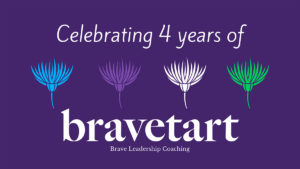I picked my kids up from school in the middle of their lessons yesterday. Not because they were ill, thankfully they enjoy good health. Not because I was afraid for their safety, they are in a great school. Not because I was afraid, it was because they were.
On my way to picking them up I had the opportunity to reflect on what was happening and briefly fell into being angry that the school hadn’t done a better job of ensuring the kids felt safe. Then I looked at the bigger picture and through that lens saw the fear in everyone I had been in contact with over the last few weeks.
The kids, I realised were in fear of a zombie-like apocalyptic event and didn’t know how to process the stories and rumours and energies of the people around them. They were being told by people that everything is ok, they will be fine and then were watching the panicked stockpiling in the supermarkets, heard the whispers of mass isolation and their immature brains had to work to create their own version of what was going on. We know that up to approx 30 years old, we don’t yet have a fully functioning frontal lobe. So these youths are reliant upon reflecting on an experience in order to find the missing pieces of the puzzle. Perhaps this time Netflix hasn’t been our friend. This is when being a parent gets tough, as you try to erase and re-write new connections with children stuck in their fear.
Once we arrived at home, we discussed at length what they were worried about and explained the bigger picture of what was happening. It was like watching butter melt. Slowly, they began to believe that their fear for their own wellbeing could be let go. The fear of what’s going to happen next, well that’s not so easy to release because even my mature frontal lobe hasn’t got all the pieces yet.
So how do we live with this fear and maintain good mental health, knowing that we are far from over this crisis? I wish I had all of the answers for you but they are just not formed yet. Instead, we have to make best use of what we have.
Stockpiling
My most recent trip to the supermarket was a fascinating experience. I didn’t go with the intention of stockpiling but I was very aware that to some extent I was doing exactly that. I wanted to make sure that in the event of the crisis escalating and we all become housebound, I could feed my family and we would all be able to wipe our backsides without fear of running out of paper.
In the canned goods aisle, there was a woman on the brink of tears who had her mouth and nose covered with a scarf, complaining that she wouldn’t be able to isolate herself because people had been greedy and now there was not enough food for her to stock up. “People will have to come back every day because they’ve taken all the food”.
In the toilet paper aisle three people were laughing about the fact one lady had bought the last pack and had celebrated her win with a whoop. She joked “I could make a profit if I sold them now but having a clean butt is way more important to me”
It was a crazy experience, so many emotions flying around the empty shelves and the look of the hunter on the faces of normally moderate people.
The truth is, we are afraid because we have lost the ability to hunter-gather, have become reliant upon the vending-machine lifestyle of put money in get food out. In a time of crisis, our brain’s fear centre is activated and we travel back in time to the land of woolly mammoths. Our instincts to stock-pile quickly before we are trodden down and become road-kill. It’s a very real fear and so deeply set in our psyche it can be pretty damn persuasive.
How can we overcome this state? There are many ways, they will work differently for each of us. What’s necessary, is the desire to change your state being more pressing than remaining fearful.
You may want to ask yourself some questions like:
Is what I believe really true?
Where is the evidence that the belief is true?
Who else do I know and trust and do they believe it is true?
Establish clarity about what you are thinking and bring awareness to it, see it for what it really is. Then you can ask:
What could I believe instead?
And take action from that place. For example:
I need to buy toilet paper and I better get at least 3 packs before there’s none left.
Is it really true that the shops will run out and we’ll be back to picking leaves from the trees? No, the shops will re-stock in time.
Where’s the evidence? The shelves may be empty but they must be getting some stock in because people are still shopping.
Who else do I know and trust and do they believe it’s true? Quite a few of the people I know are buying enough to be stocked for up to a month, just like they always do.
What could I believe instead? The shops will restock but it makes sense that while they get stock levels back to normal, we don’t run really low. One multi-pack will be quite enough.
Buying from this place, helps to create calm and resolution, by emulating that, we can support others in their fears and help them do the same. Remember the people you know and like? Be that person for someone you care about.
Isolation
It’s a frightening thing to believe that you may be living in a time when you’re not allowed to leave home. We still have people with living memory of the Second World War and the fear of that generation still impacts our own fears today. So our vivid imaginations go into party mode as we try to understand what that life may look like. Ask anyone who is housebound or lives alone and they will tell you isolation is no fun. Sure for a time, we can all enjoy alone-time and as a Mum of 3, it’s a precious thing, but being isolated not knowing for how long triggers fear for many of us.
I’ve listed a few things you can practise that will play a big part in helping you to find the resolve to endure periods of isolation.
Practice gratitude – you cannot feel sad and grateful at the same time. You may have to dig a little deeper to find your gratitude but it’s worth the effort.
Journaling – yes, that old chestnut! Emptying your mind of all that’s filling it really helps to find peace and awareness of what’s really going on.
Nature – ok so this might be a challenge for some depending on where you live but get outside, every day and breathe in the fresh air, go for a walk if you can or wrap up warmly and read a book in the garden.
Plan a daily activity – I have a mountain of unfinished jobs I’d love to get ticked off the list, make a plan to do something every day so you can feel a sense of achievement.
Accept that working through your fear may take time. There will be times when you think you’ve overcome your fear only to have it pop up again when triggered by something else that is happening in the world. These are layers, each time we move through an episode of fear – assuming we have worked through it rather than pushed it aside – we have peeled back another layer and we get closer to releasing the fear that has been trapped within us for months or years. Hard as it may be to consider, this time of chaos and uncertainty presents a powerful opportunity to really get to know ourselves and to grow into being the leaders this frightened world desperately needs right now. Leaders filled with compassion and understanding, with love and commitment, with acceptance and passion. Whether you are leading your family into contented co-habitation, supporting your employees now forced into furlough, or pivoting your business to survive this trying time, the very best thing you can do is to work through your fears. Knowing and growing from that place will empower you and comfort those around you. Wouldn’t you rather be that kind of leader?




